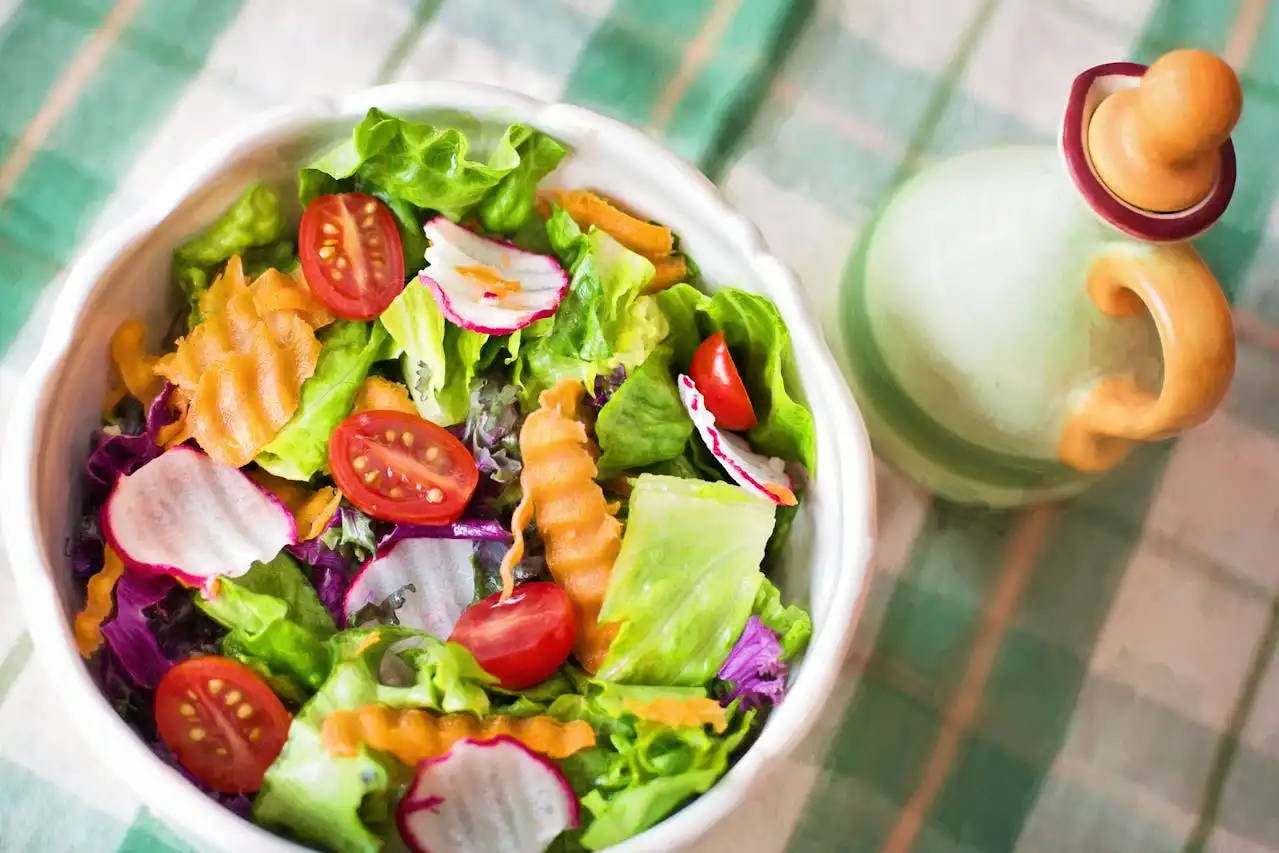Navigating the Green Plate: From Lacto-Ovo to Vegan, Which Vegetarian Path Calls Your Name?
Muhe - Monday, 21 July 2025 | 04:30 PM (WIB)


The Ever-Expanding Universe of Plant-Based Living
For decades, "vegetarian" was a pretty straightforward label. You ate plants, no meat, poultry, or fish. Simple, right? Well, like all things in our fast-paced world, dietary choices have evolved, splintered, and diversified. Today, being "vegetarian" often serves as a big umbrella term, sheltering a fascinating array of eating patterns beneath its leafy canopy. Let's peel back the layers and explore some of the most common, and sometimes misunderstood, categories.Lacto-Ovo Vegetarian: The OG Veggie Crew
When most people picture a vegetarian, they're probably envisioning a lacto-ovo vegetarian. This is the most common and, arguably, the most flexible type of vegetarianism. The deal here is pretty clear: no meat, no poultry, no fish, and no seafood. However, dairy products (think milk, cheese, yogurt) and eggs are very much on the menu. Many folks choose this path for a variety of reasons – maybe it's the ethical treatment of animals, a desire for better health, or even environmental concerns. It's often seen as a gentle entry point into plant-based eating because you still have a wide array of familiar foods to fall back on, making the transition less daunting. Plus, who can say no to a cheesy pizza or a fluffy omelette?Lacto-Vegetarian: Dairy's Still In, Eggs Are Out
Taking things a step further, we have the lacto-vegetarian. This diet includes dairy products but excludes eggs, along with all meat, poultry, and fish. You might wonder, "Why cut out eggs but keep dairy?" For some, it boils down to specific ethical considerations related to the egg industry. For others, particularly in certain cultures (like many traditional Indian vegetarian diets), milk and dairy products hold significant cultural and religious importance, while eggs do not. It’s a slightly narrower path than lacto-ovo, requiring a bit more vigilance when dining out, but still offers a rich and varied diet.Ovo-Vegetarian: Eggs Are In, Dairy's Out
Now, this one might be the dark horse of the vegetarian world. An ovo-vegetarian eats eggs but steers clear of dairy products, in addition to all meat, poultry, and fish. This choice is often driven by dairy allergies or intolerances, or perhaps ethical concerns specifically targeted at the dairy industry, while finding the consumption of eggs more acceptable. It's less common than its lacto-ovo counterpart, but perfectly valid. Imagine enjoying a scramble for breakfast without a drop of milk in sight, or baking a cake without butter – it certainly makes you think differently about ingredients!Pescatarian: The Ocean's Bounty (But No Land Animals)
Ah, the pescatarian. While technically not a full vegetarian (as they consume fish and seafood), this diet is often considered a "semi-vegetarian" or a stepping stone towards a plant-based lifestyle. Pescatarians avoid meat and poultry but include fish and other seafood in their diet. Why this choice? Often, it's for the health benefits associated with omega-3 fatty acids found in fish, or perhaps an easier transition away from red meat. It’s also seen as a more sustainable option by some, given the environmental impact of industrial livestock farming. Many people find it easier to get enough protein and a wider range of nutrients when fish is an option, making it a popular choice for those dabbling in cutting back on meat.Vegan: The Whole Nine Yards (And Then Some!)
And finally, we arrive at veganism – the ultimate plant-based commitment. A vegan diet goes beyond just avoiding meat, poultry, and fish. It excludes all animal products and by-products. This means no dairy, no eggs, no honey, no gelatin, and often no animal-derived ingredients in processed foods. But it's more than just a diet; for many, veganism is a comprehensive lifestyle choice that extends to avoiding leather, wool, silk, and any products tested on animals. The motivations behind going vegan are typically deeply rooted in ethical concerns for animal welfare, strong environmental convictions, and often, a pursuit of optimal health. It's a significant leap, requiring a fair bit of research and dedication to ensure proper nutrition, but for those who embrace it, it's a profoundly rewarding journey that aligns their actions with their values.Flexitarian: The Best of Both Worlds?
While not strictly a "vegetarian" category, the flexitarian diet deserves a mention because it's arguably the biggest trend in plant-forward eating right now. A flexitarian is, as the name suggests, flexible. They primarily eat a plant-based diet but occasionally include meat, poultry, or fish. Think of it as "mostly vegetarian." This approach appeals to many because it allows for the health and environmental benefits of eating more plants without the pressure of a strict, all-or-nothing commitment. It's perfect for those who want to reduce their meat consumption without feeling deprived, making it an easy entry point for anyone curious about sustainable eating.So, Which One Suits You Best?
After all that, you might be thinking, "Okay, but which path should I take?" And the honest-to-goodness truth is, there's no universal answer. The "best" type of vegetarianism for you is the one that aligns with your personal values, health goals, lifestyle, and frankly, your taste buds. Are you looking to improve your health? Reduce your environmental footprint? Stand up for animal rights? Or simply try something new? Maybe you're curious about a full vegan dive, but the idea feels too overwhelming right now. No biggie! Start with a flexitarian approach, embracing "Meatless Mondays" or aiming for plant-based meals a few days a week. Or perhaps lacto-ovo vegetarianism feels like a comfortable and sustainable first step. The key is to listen to your body, do your research, and don't be afraid to experiment. This isn't about rigid rules or passing a purity test; it's about making conscious choices that make you feel good, both inside and out. The world of plant-based eating is vast and delicious, full of incredible flavors and innovative dishes. So, take the plunge, explore, and discover which green path truly calls your name!
Your Weekend Won't Recharge Itself: A Guide to Crushing the Energy Reset
6 months ago

The Hidden Horrors of Tear Gas: More Than Just a Fleeting Sting
6 months ago

1312: The Meaning, Origin, and Social Context of the Notorious Number
6 months ago

The Digital Tightrope: How Social Media Puts a "Double Burden" on Today's Teens
6 months ago

Say Goodbye to Awkward Texts: WhatsApp Unveils Your New AI Writing Coach
6 months ago

The Secret Weapon of Penguins: Why Their Poop is More Impressive Than You Think
6 months ago

NVIDIA Crushes New Record, Yet Market Concerns Still Exist Over "AI Bubble"
6 months ago

Your Cosmic DNA? Unpacking How Zodiac Signs Shape Who We Are
6 months ago

The Siren Song of Easy Money: Why We Can't Resist
6 months ago

Unplug and Recharge: Your Guide to Escaping the Gadget Grip
6 months ago
